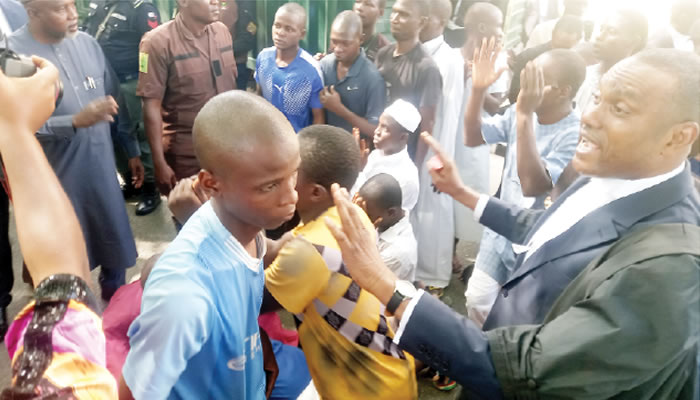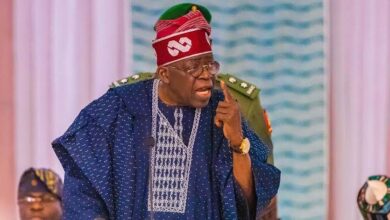Lawyers Call For Justice And Support for Freed Minors From #EndBadGovernance Protests

In the wake of the #EndBadGovernance protests, legal experts have urged Nigerian President Bola Tinubu to ensure rehabilitation and compensation for minors who were recently detained and then released under his directive. This appeal follows significant public backlash after minors were arraigned before the Federal High Court in Abuja, looking malnourished and reportedly suffering due to extended detention.
The case was dismissed by Justice Obiora Egwatu after the Attorney-General applied for their release. However, legal practitioners argue that mere release falls short of addressing the traumatic experience endured by these minors, advocating for more comprehensive support. Senior Advocate of Nigeria (SAN) Wahab Shittu praised Tinubu’s intervention but insisted that the government must provide these minors with rehabilitative care, reorientation, and compensation. According to Shittu, a well-rounded welfare approach would convey Tinubu’s sensitivity to the concerns of the populace.
Legal practitioners, including the Convener of Access to Justice, Joseph Otteh, harshly criticized the minors’ detention, labeling it excessive and a gross violation of their rights. He argued that charging these minors with terrorism and treason was unwarranted, noting that their actions during the protests were within their constitutional rights. Otteh pointed out the duty of authorities to apologize and compensate individuals who are wrongfully detained, referencing Nigeria’s Constitution, which mandates restitution for unjust arrests.
The lawyers further stressed that the minors’ rights were trampled upon by both the police and judiciary. Otteh highlighted that under Nigeria’s Child Rights Act (CRA), minors should be quickly released upon arrest or at least have their cases expedited, especially since they were exercising a right to protest rather than committing violent crimes. He argued that, by law, the police and judiciary were obligated to prioritize the release of these minors, which did not happen. Additionally, Otteh emphasized that, according to the Administration of Criminal Justice Act (ACJA), the courts lacked authority to detain them for two months, as remand orders should not exceed 42 days without trial.
Furthermore, legal authorities including SAN Kunle Adegoke and Prof. Sam Erugo weighed in, emphasizing that minors cannot be held to the same standards of criminal responsibility as adults. Erugo criticized the initial decision to prosecute the minors in regular courts, stating that the CRA mandates juvenile cases to be handled in family courts to safeguard their welfare and dignity. Detaining minors in adult facilities, he argued, exposed them to dehumanizing conditions and violated basic human rights.
Prof. Damilola Olawuyi noted that Nigeria’s detainment practices in this case contradict international child protection conventions, including the Convention on the Rights of the Child, to which Nigeria is a signatory. He asserted that the CRA envisions a restorative approach focused on rehabilitation rather than punishment for minors who violate the law. Olawuyi called for a comprehensive investigation to hold responsible officers accountable for these infractions and suggested enhanced human rights training for law enforcement.
SAN Wolemi Esan provided further legal insight, explaining that the CRA and the Children and Young Persons Act (CYPA) categorize children based on age and determine their level of criminal responsibility. The law exempts children under seven from criminal liability and requires that children between the ages of 12 and 14 undergo juvenile court processes instead of standard trials. Esan argued that these protections were likely disregarded in this instance.
In sum, the legal community’s response underscores a widespread call for systemic change and adherence to legal standards when handling minors in Nigeria’s justice system. Experts argue that the minors detained during the #EndBadGovernance protests should not only be released but also receive compensation, rehabilitative care, and an apology, highlighting the government’s responsibility to uphold child rights and prevent future occurrences of such legal oversights.



